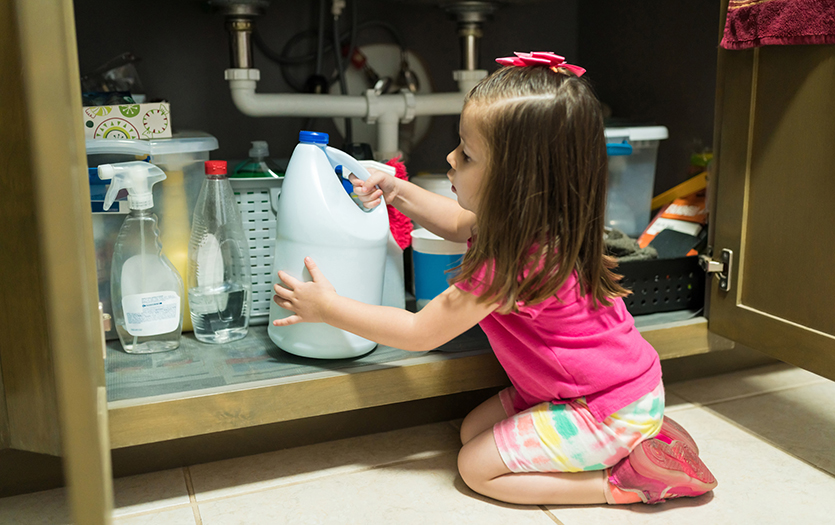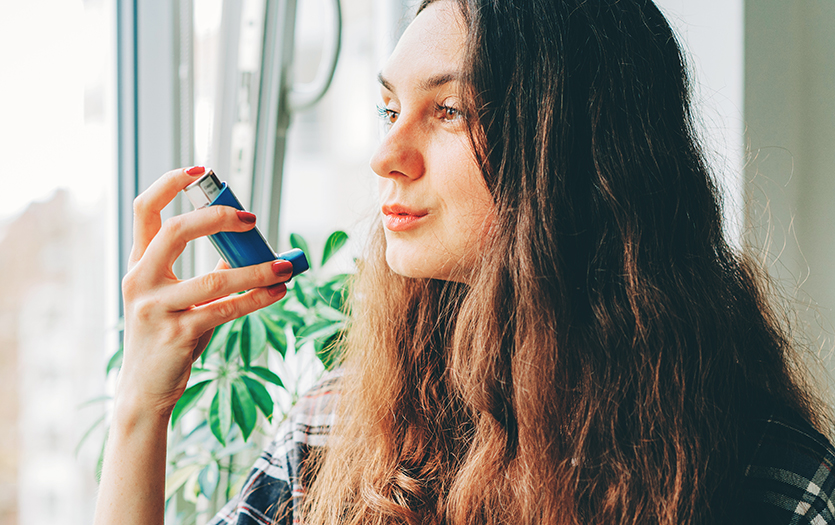
This post was written by Lakshmi Yalamanchali, MD, PPG – Pediatrics, PPG – Primary Care.
Poisoning can occur if your child comes in contact with a harmful substance. This risk encompasses eating or drinking, inhaling or coming in direct contact with a toxic substance on the skin. Because reactions can be life-threatening, it’s crucial for parents to understand the potential hazards, how to respond if their child does ingest or come into contact with a toxic substance, and the key points of prevention.
Symptoms
A child’s reactions to poison vary from simple irritation to life-threatening damage to their body.
Symptoms of poisoning may include:
- vomiting
- difficulty breathing
- confusion
- sleepiness or being unresponsive
- flushing
- excess sweating
- changes in their pupil size
- belly pain
Types of pediatric poisoning
Poisoning most commonly happens when a child eats or drinks a toxic substance. However, breathing in fumes of harmful substances or skin contact can also lead to poisoning.
Most poison incidents happen accidentally with products or items typically found in a home. This might involve a child getting into prescription or over-the-counter medications, fluids like household cleaning supplies, pesticides, alcohol, gasoline, antifreeze, oil, etc. It could also result from inhaling gases, like carbon monoxide or ammonia.
Intervention
If you suspect your child has been poisoned, get care immediately! Remove them from the harmful substance and immediately call poison control at 800-222-1222. They are available to help 24/7. Do not try to make your child vomit, as this could lead to more damage.
If your child has trouble staying awake or breathing, call 911 for immediate care.
Prevention
The most important tool in preventing poisoning is to keep your child away from dangerous substances. These tips can help you review the safety measures in your home.
Medications
Pain medications like opioids and many other prescription drugs can be dangerous to children, as can common over-the-counter pain relievers like Tylenol® and ibuprofen. Medications used to treat blood pressure, diabetes and chronic pain can be fatal for kids. Write the start date on the label to keep track of medications so you will know if any are missing.
Start talking to your children about medication safety. Advise them not to take any medication without asking a caretaker. Make it a point to discuss drug safety at every opportunity. This should hinder them from taking medicine unsupervised, though locking everything up is best.
Keep all medications locked and out of the reach of children. Safety straps and locks can help prevent a child from accessing cupboards or cabinets that hold medication. Dispose of all expired and unnecessary medications safely at your pharmacy or through a local drug take-back program.
Supplies, gases and machinery
Keep cleaning and maintenance supplies out of the reach of children. Machines, heaters and equipment that run on gasoline, kerosene or oil should be used in well-ventilated spaces. Ingestion of kerosene is commonly seen, and they usually aspirate and develop pneumonia and respiratory distress. Antifreeze, in particular, tastes sweet and is brightly colored, so it should be kept far out of reach and ideally should have a child-proof cap.
Other hazards
Other objects you must keep out of children’s reach are magnets, button batteries and coins. When more than one magnet is swallowed, they can attract each other across tissue and can be fatal. Button batteries are commonly present in children's toys, and their ingestion can be fatal, cause burns and perforation the esophagus. Coins can cause obstruction to the airway and food pipe. Parents have to be diligent about keeping these small-but-deadly items up and out a their child’s reach.
Lastly, be sure to keep the number for poison control stored on your phone. Call 800-222-1222 should you have any concerns about a substance or item your child might have consumed.



